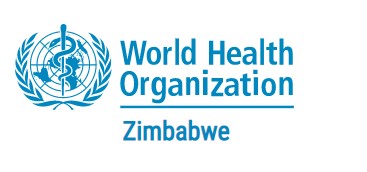Sheba Usanda, a dedicated community health promoter (CHP) at Zengeza Clinic since 2010, recently participated in vital training sessions on cholera prevention and control. The training served as a reminder that cholera, despite being controlled to some extent, continues to pose a significant threat, especially in hotspot areas like Chitungwiza. Armed with renewed knowledge and strategies, Sheba is poised to share this vital information with her community, which is in one of the country's main cholera hotspots.
The main objective of the training was to equip communities with effective cholera prevention and control practices to mitigate the disease's morbidity and mortality rates. The workshop also intended to prepare the health promoters for the upcoming rapid behavioral risk assessment in numerous hotspots, including Chitungwiza, Harare, Buhera, Mutare rural, and Gutu.
"Now, I'm equipped with critical knowledge, such as how to prepare a salt and sugar solution and identify the signs and symptoms of cholera. In my community, many people are unaware and tend to stay home when infected. With this new understanding, I can empower my community to recognize symptoms early and get prompt medical care, potentially saving lives," Sheba expressed.
Sheba is among the 120 community health promoters who recently underwent training on cholera prevention and control. This initiative is a part of the Zimbabwe Ministry of Health and Child Care's (MoHCC) targeted response to the ongoing cholera outbreak, with the support of the World Health Organization (WHO). The two-day training event, held at the Chitungwiza City Council from 22 - 23 November, drew health promoters from various wards in Chitungwiza.
“Our goal is not just to respond to the cholera outbreak but to equip our communities with the knowledge and tools they need to prevent future outbreaks. This training is a pivotal step in that direction,” said MoHCC, Health Promotion Manager Mr Paul Chinakidzwa during the training.
As part, WHO Zimbabwe support, over 10,000 posters were donated to MoHCC for the health promoters to distribute in their communities to enhance awareness of cholera prevention. Post-training, these promoters are expected to disseminate their knowledge in their respective communities and assist in conducting the upcoming rapid assessment.
The training and subsequent community engagement activities form part of WHO’s emergency response program to the ongoing cholera outbreak. The program emphasizes Risk Communication and Community Engagement (RCCE), which is pivotal in fostering community awareness and promoting the uptake of cholera prevention measures.
Risk Communication and Community Engagement (RCCE) play an important role in advocacy, communication, and social mobilization for the uptake of cholera public health and social measures. Comprehensive cholera awareness initiatives, including interpersonal communication, are essential to address the needs of individuals, families, and communities for cholera prevention and control.
"We are committed to supporting Zimbabwe's efforts in combating cholera. By empowering community health promoters like Sheba, we are taking significant strides towards improved community health and resilience,” said WHO Zimbabwe, RCCEE Officer Mrs Priscilla Mangwiro.
During the cholera outbreak WHO Zimbabwe has been supporting the MoHCC to implement health promotion initiatives aimed at preventing and controlling cholera outbreaks. These initiatives include fostering stakeholder engagement, particularly with interfaith organizations of traditional and religious leaders; developing and reviewing strategy documents and evidence generation tools; training health promotion officers, community health workers, and promoters; raising awareness through interpersonal communication during door-to-door engagement and community dialogues; conducting mobile awareness campaigns using loudspeakers and roadshows in high-burden areas; designing, printing, and distributing Information Education and Communication (IEC) materials such as posters, fliers, and promotional items like T-shirts; and generating evidence to guide interventions.
Distributed by APO Group on behalf of World Health Organzation (WHO) - Zimbabwe.
Latest Stories
-
Celebrating 65 years of impact: Commonwealth scholars and fellows alumni in Ghana
15 minutes -
Our confidence in the law has borne fruits – Ebi Bright on SC ruling
23 minutes -
Mandamus application to be heard by new High Court judge – Supreme Court rules
45 minutes -
Krofuon residents attack GNFS personnel as fire destroys Trinity TV and church
52 minutes -
Movie review: Peter Sedufia’s ‘One Night Guests’
2 hours -
Three dead, several injured in accident on Cape Coast-Accra highway
2 hours -
MTN donates to support two hospitals in Savannah region
2 hours -
NDC victory a call to action for agricultural and economic revitalization in Ghana – Klutse Kudomor
2 hours -
Adidome Chief alarmed over rising teenage pregnancy in Central Tongu, calls for collective stakeholder action
2 hours -
MTN Foundation celebrates Christmas with new mothers across Ghana
2 hours -
MTN Ghana presents hampers to 60 Christmas babies in Central region
2 hours -
Re-collation: Supreme Court quashes results in Tema Central, Ablekuma North, Techiman South, Okaikwei Central
3 hours -
NDC accuses trial judge of bias over order to re-collate outstanding parliamentary results
4 hours -
WAEC receives additional fund of GH¢35m, urges release of outstanding funds
4 hours -
Illegal Mining at Songor Lagoon thwarted by Electrochem Ghana Limited Security
4 hours

